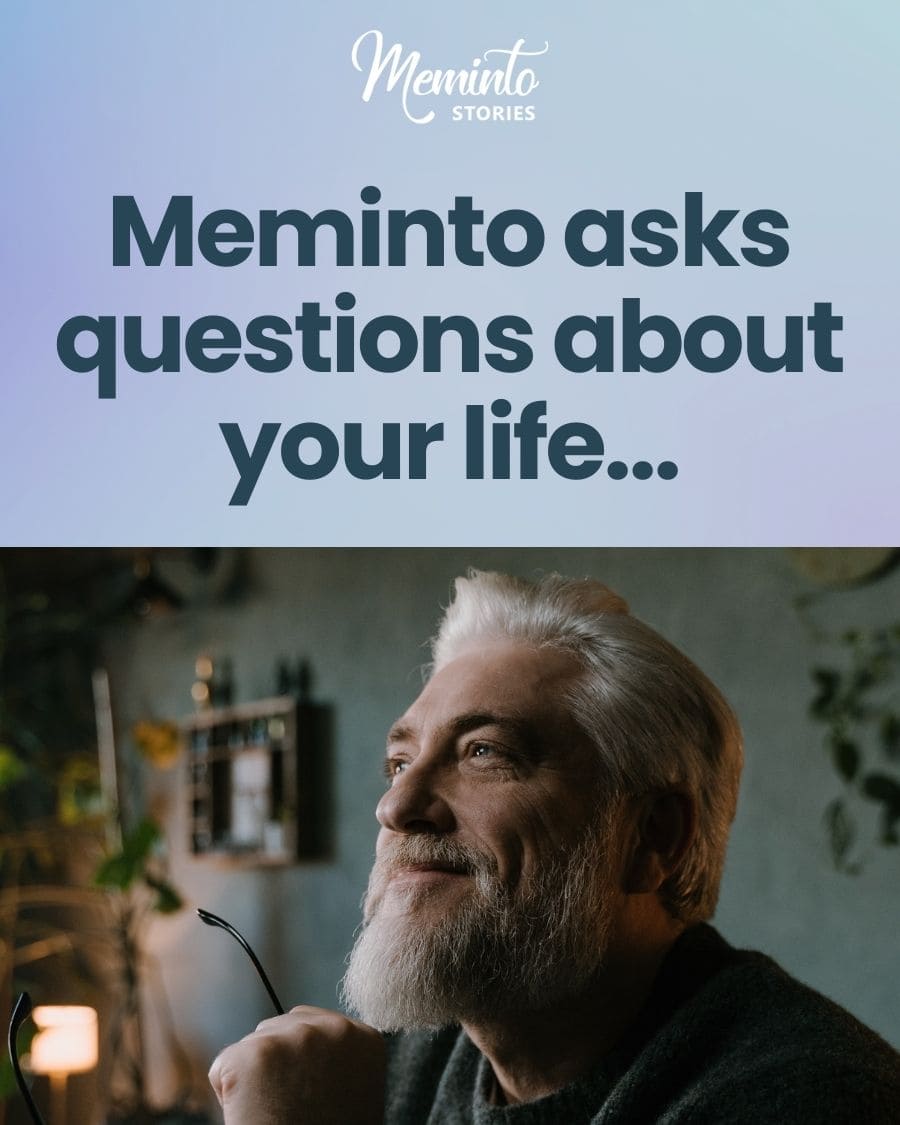Everyone aspires to leave a mark, at the same time not all do what they put into play. We tend to think our doings will do the talking for us and that the people we care for will in turn, know what we stood for. What we have found out is that memories wear off, stories die out, and the unspoken remains unsaid.
Leaving a legacy is not just in terms of wealth or accomplishment. It is in the sharing of your values, what you learned, and the issues that defined you. This includes the day-to-day tales, the quiet tenets which you lived by, and the counsel you had to give should someone have asked.
In this article, we will look at 7 ways to leave a legacy that stands the test of time. As you look ahead for your family’s future or reflect on what is most important to you personally, these options will help you pass along what truly counts.
🗝️ Key takeaways
- Leaving a legacy is not about having everything figured out. It’s about sharing the parts of your life, like your memories, values, and lessons, that will help others understand who you were and what mattered to you.
- Small stories often carry the most meaning. The way you lived, the choices you made, and the little moments you remember can help your loved ones feel closer to you long after you’re gone.
- Life doesn’t always hand out perfect lessons, but what you’ve learned through experience can offer comfort and guidance to someone facing something similar.
- Traditions are more than habits. Explaining their reason gives the next generation a deeper connection to their roots and a clearer sense of what they’re continuing.
- You don’t need to wait for the right time or words. Starting with just one memory or message is enough to build something meaningful.
Why should you leave a legacy behind?
It is a easy thing to put legacy out of your mind at times when your plate is already full. There is always that next thing on the to do list, that other day to get through and it is easy to think that which which comes will also wait for you.
But in fact what I am to say is that your story, voice, and values matter a great deal. They matter to your children, your partner, and the people which you love, even if they don’t always put it into words.
Leaving a legacy is not about fame or having all the answers. It is about what you leave behind for the generations to come which keeps your presence felt even when you are gone.
Here’s why it matters more than you might think:
1. Your story could shape someone else’s journey
You may not see yourself as having a story worth telling out there, what you are going through is still of interest to someone who cares for you.
What you have lived which includes your decisions, your victories, and your regrets may in the future help someone else with their own.
When you share your story you leave behind more than stories. You leave guidance, connection, and comfort.
2. Your voice can still be there when it matters most
There will be moments when your loved ones wish to hear from you. Maybe they’ll be facing a difficult choice or simply missing your presence.
In those moments, your words, values, or even a small note can offer reassurance and remind them they are not alone. A legacy allows your voice to stay present, even after you are gone.
3. The details that define you won’t last forever
We tend to think that we will remember all that happens, but in fact with time many of our most vivid memories fade out.
The way you laughed, the meals you used to make and the words you would say these are very personal and may be lost over time if we don’t write them down. By doing it now, you give your family some real thing to keep.
4. Your life becomes more meaningful when it’s shared
The things you’ve been through carry more weight when passed on.
Whether it’s a hard lesson, a personal triumph, or a quiet truth you learned along the way, your experiences hold power. Sharing them adds meaning to your life and helps others grow from it, too.
5. Someone you love will one day need your words
Even though there are no questions today that doesn’t mean they won’t in the future.
In your circle of friends and family there may be someone who is interested in what you stand for, how you get through hard times, what brings you peace.
Leaving your reflections is a benefit to them as it takes out the guess work. They will have your words to turn to when the time is right.
7 ways of leaving a legacy
There’s no right way to leave a legacy. Some people pass down wisdom through words. Others do it through shared traditions, photos, or quiet moments that say more than speeches ever could.
What matters most is that your legacy feels like you. It captures what you care about, have learned, and want to pass on to the people who matter.
Here are seven simple but powerful ways to start building a legacy that lasts:
1. Tell your story in your own words
There’s something powerful about hearing a loved one’s story told the way they remember it. It is not polished or rehearsed; it is just honest and real. Your voice, memories, and perspective matter more than you think.
Maybe it’s the quiet joy of walking to school barefoot, the nerves before your first job, or the moment you met someone who changed your life. These moments might feel ordinary, but they are often the ones your loved ones will treasure most.
You don’t need to tell your whole life story in one go. You can start with one memory. It could be something simple, like how you learned to ride a bike, a lesson you never forgot, or a family habit that still makes you smile. Whether you write it down, record your voice, or film yourself talking, the most important thing is that it feels natural to you.
“The process was a success and my book turned out even better than I hoped… Meminto allowed me to combine photos with narratives, producing the perfect marriage of text and photo memories. I can’t say enough about this company or its product.”
– Gail, blogger and lifelong journaler
If you’re unsure where to begin, Meminto’s guided prompts can help ease you into it. One question at a time, your memories start to come together, shaped by your voice and preserved in a way that feels true to you.
For more inspiration, explore How to Document Your Memories for creative ways to capture your stories.
2. Pass down the lessons life taught you
The things life has taught you, whether through joy, loss, mistakes, or growth, carry more value than you might realize. No matter how small they seem, these lessons have shaped how you live, think, and love.
You may not think of yourself as someone with wisdom to share, but your experiences can help others feel seen, guided, or simply less alone. A single truth you’ve learned, shared honestly, can offer more than a well-crafted piece of advice.
Start with one turning point. It could be something you wish you knew earlier or a lesson that has stayed with you over the years. You can write, record, or talk through it in your own way. If you’re unsure how to begin, Meminto’s questions can help you reflect and pass those lessons on, one story at a time.
3. Preserve family traditions with the meaning behind them
Family traditions have a way of tying the past to the present. Whether it’s how your family celebrates holidays, the food passed down through generations, or quiet rituals that happen without much thought, these moments create rhythm, belonging, and memory.
What makes a tradition powerful isn’t just the act itself but the meaning behind it. Explaining where it started or why it matters to you becomes more than a routine. It becomes a story others can carry forward with intention.
You don’t need to document every tradition at once. Start with one. Describe how it began, what it reminds you, or why it still matters. That context turns simple routines into something your loved ones can understand, appreciate, and maybe one day continue.
For guidance on structuring your memory book, consider reading How to Pick a Memory Book Theme. This will ensure that your traditions are well represented.
4. Share the values that guided your life
Long after people forget your words, they’ll remember how you lived. The decisions you made, how you treated others, and what you stood by often speak louder than advice ever could.
Your values—whether rooted in kindness, resilience, faith, or honesty—shape your legacy more than anything else. When you name those values and share how they showed up, you give your loved ones a deeper understanding of who you are and what mattered most to you.
You don’t need to write a list. Just start with one moment where a value guided your choice. Maybe it was a time you stayed quiet when it was easier to argue, or when you kept going even though you were tired. These small stories leave lasting impressions and give others something meaningful to hold onto.
5. Leave messages for moments that matter
There will be moments when your loved ones wish to hear from you. It might be during milestones, difficult days, or times when they simply need reassurance. A short message saved for a future moment can offer comfort and strength, even if you’re not there to say it in person.
You don’t need to write a long letter. A few words, written or recorded, can stay with someone for life. Choose a moment that matters to you, like a birthday, a wedding day, or an ordinary day when they might need a reminder that you’re proud of them, and say what you genuinely want them to remember.
6. Add context to your favorite photos
Photos can bring back emotion instantly, but without context, even the most cherished images can lose meaning over time. The people in them, the stories behind the smiles, and the details that made those moments special often fade if they’re not shared.
Choosing a few photos and telling the story behind them is a simple way to preserve more than just the image. Explain what led up to that moment, how you felt, or what that day meant. Even a short caption can make a photo more powerful and personal.
Meminto lets you connect voice notes or short videos to your photos if you want to take it further. Learn how to utilize your smartphone for this purpose in How to Record Life Stories Using Your Phone.
Each memory is saved with a scannable QR code in your printed book, allowing your loved ones to hear your voice or see the moment in motion. This adds a deeper layer to the memories you leave behind.
7. Make it a shared memory project
Your legacy doesn’t have to be a solo effort. Inviting others—siblings, children, or even close friends—to share their memories creates a fuller picture of your life and theirs.
You can create a shared digital scrapbook, start a family interview series, or ask others to share their side of a shared moment. These combined stories make your legacy a living, breathing piece of family history.
“The quality of the books was actually better than I expected… I’m really impressed with how it turned out. It lives on our shelf and everyone who sees it swoons over it.”
– Anja P., photographer & memoir creator
Meminto’s collaborative features allow multiple people to contribute stories and memories, making it easy to create something meaningful together.
Get $10 off your first Meminto book project 📖
We appreciate you for reading this article. As a token of our gratitude, we would like to offer you a special $10 discount on your first book with Meminto!
💭 Closing thoughts
Leaving a legacy isn’t about doing everything at once or perfecting it. It’s about choosing to share what matters most. When you take time to pass on your memories, values, and voice, you give the people you love something they can hold onto long after you’re gone.
You don’t need a big moment to begin. You just need to start with one story, memory, or truth worth passing on.
And if you ever need a little help along the way, Meminto is there to guide you through it, one question, one photo, and one reflection at a time.


















